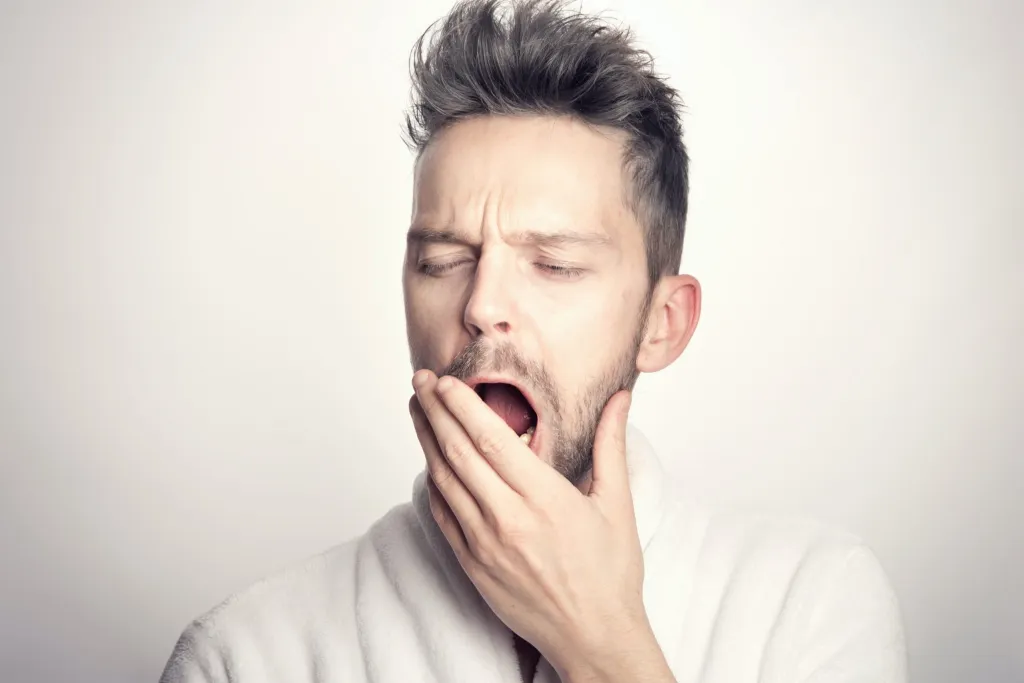
Insomnia is difficulty falling asleep, difficulty staying asleep, poor sleep quality or a combination of these symptoms. Insomnia is the world’s most common sleep disorder, affecting 10% of the population chronically. There are two main types of insomnia-acute and chronic.
Acute insomnia lasts less than three months and usually resolves on its own without treatment. Chronic insomnia is also called insomnia disorder. It usually lasts at least three months and affects a person three days or more each week. It is more common in women, the elderly, and those with more severe insomnia.
Chronic insomnia doesn’t resolve on its own, but it responds well to certain types of treatment. It is almost always caused by negative psychological association with the bed and the attempt to sleep.
Insomnia can also be classified as primary or secondary insomnia.
Primary insomnia means it is not linked to any other health condition. One of the major causes can be stress. If you have recently experienced a major life-changing situation that can lead to a lot of stress like the loss of a job, loss or death of a loved one, moving to a new place or even a divorce these may be things that you tend to worry about and can keep you up at night. Other causes for primary insomnia may include a change in your sleeping schedule. In addition, things like light temperature or noise can affect your sleep.
Secondary insomnia means it is linked to another health condition that you may have like asthma, depression, arthritis, cancer, heartburn or chronic pain. Substance abuse with either medications, drugs or alcohol can also lead to insomnia.
There are a few other conditions that lead to secondary insomnia including restless legs syndrome, sleep apnea, or hyperthyroidism.
If your insomnia is ongoing over a period of several weeks your doctor might ask you to keep a sleep diary which can keep track of how much you sleep during the night and how you feel during the day.
How is insomnia diagnosed?
Insomnia is diagnosed based on what you tell the sleep specialist. In addition, your medical history, your psychiatric history, and your insomnia symptoms are all taken into consideration.
Overnight sleep studies are done sometimes in insomnia patients to rule out if there’s some underlying sleep disorder like sleep apnea or restless legs syndrome that is causing the insomnia.
Your doctor may advise some blood tests to check for thyroid problems or other conditions that may be associated with poor sleep.
So, insomnia is a complicated sleep disorder because there’s always different factors for different individuals that are contributing to it. Looking at behavioral issues that the patient has that may be feeding the insomnia is very important.
What is the treatment for insomnia?
Acute insomnia that only lasts a night to up to a few weeks does not require any treatment. If the insomnia was due to a stressful situation in your life that is now resolved, typically the insomnia will also resolve.
As doctors we like to educate our patients about good sleep hygiene. This includes having a set time that you go to sleep every night and avoid any activities that stimulate your brain which would keep you up.
These can include activities like drinking caffeine before you fall asleep, exercising before bedtime, watching TV, or using your phone. Excessive screen time before bed can expose you to blue light which has the ability to keep you up at night. For insomnia related to anxiety, you may want to practice relaxation techniques or meditative practices before bedtime. If none of these behavioral treatments are working for you, the next step would be to take an over-the-counter sleep medication.
The most common over-the-counter treatments include a supplement called melatonin. For insomnia that is not well treated with over-the-counter medications or for insomnia that is becoming chronic, you can discuss with your doctor about starting a sleep medication that requires a prescription. However, these medications can become habit-forming and can be addictive so you want to avoid them if possible.
The main treatment is cognitive behavioral therapy for insomnia. Sleep behavioral psychologists help to identify the factors contributing to insomnia. They help to set up a treatment plan for patients to change their behavior. Research shows that cognitive behavioral therapy has the biggest impact and is equally or more effective than sleep medications.
Prevention
There are a few tips that you can use to help avoid insomnia in the future.
- Going to sleep at the same time each night and waking up at the same time each morning. This can get your body into a regular sleep pattern and routine. You want to make sure not to take naps throughout the day because that can keep you up at night.
- Certain food products can affect your sleep. You want to avoid eating a large meal before bed. Avoid any caffeine or caffeinated products right before bed.
- Keeping your body healthy with exercise throughout the day can help you sleep at night. But don’t exercise at least three to four hours before bedtime.
- Don’t watch TV, use your smartphones or read ebooks right before bed because the light can keep you up.
- You want to make your bedroom a comfortable place to sleep. This includes making it dark, silent and having the right temperature so that you are not too hot or too cold.
Sleep is very important for both our bodies and our brains. If you are not getting enough of it, you can experience certain complications. A lack of sleep over time can definitely put you at more risk for depression, anxiety, high blood pressure and obesity.
It can also affect your learning and memory and cause problems with your concentration. This can affect your overall performance at school or work. Lastly, many of you know that if you don’t get good sleep, you are just an overall grumpier person.
Did you find my article “Sleep problems? You might be suffering from insomnia” helpful or know somebody who would? I’d really love it if you could share it.



